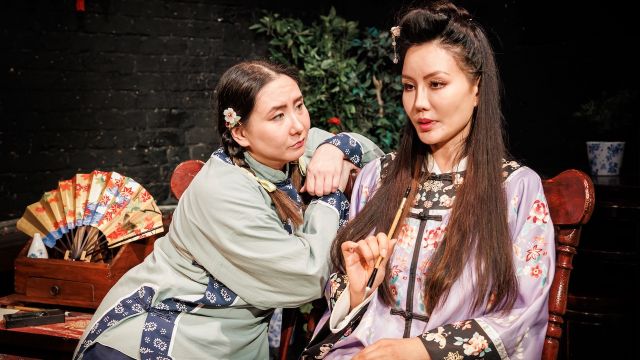Farewell Lady Autumn
Qiu Jin (Isabelle Wang) is an extraordinary historical figure who resisted sexist and misogynistic cultural practices in China. She fought for women’s freedom in an era when foot-binding was still common. The amazing story of her intelligence and determination is certainly well worth depicting and retelling.

Stansah’s script achieves this well by covering so many aspects of her life, especially the friendship and solidarity she shared with other women in her life, Ping Ping (Fanny Hanusin) and Zhihyua (Lansy Feng). The text also features her poetry and the emphatic and explicit manner in which she expresses her feminist ideas. This attests to her courage and bravery as speaking out comes at great personal cost. The performance effectively captures the important historical nature of this story. However, the characters are cast in a somewhat stereotypical light which makes it difficult to add nuance and finer detail to their portrayal.

The set design is very rich and beautifully evokes the historical period. The elaborate and colourful costumes also help to create a very rich tapestry in the overall look of the setting of the play. The use of screens in the scenes depicting the violence experienced by Qiu Jin at the hands of her husband, Tingjun (Jamie Vu), are especially clever. However, the staging of this play requires some attention. The episodic nature of the story is made too obvious with frequent scene changes and minor alterations to the set. This tends to interrupt the flow of the story and sometimes appears quite clumsy.

One of the highlights of the show was Wang’s instrumental performance on a Guzheng. This further added to the very effective historical atmosphere created in this production which provides a fascinating account of an important feminist figure.
Patricia Di Risio
Photographer: Darren Gill
Subscribe to our E-Newsletter, buy our latest print edition or find a Performing Arts book at Book Nook.

